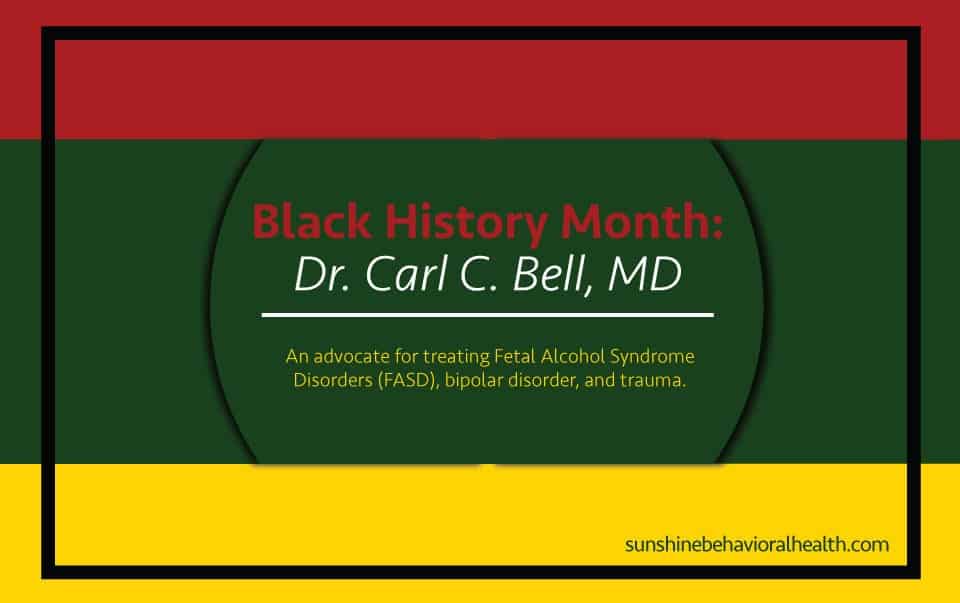
Black History Month: Dr. Carl C. Bell
Carl C. Bell, MD, may have died in 2019 at the age of 71, but his contributions to psychiatry will live on. He wrote about and spoke for many issues, including fetal alcohol syndrome disorders (FASD), bipolar disorder, and trauma. Bell practiced in Chicago and helped found the Windy City’s South Side Community Mental Health Council, even sitting outside the facility to see patients after it suddenly closed in 2012. He was dedicated to raising awareness of FASD as well as helping families affected by it. FASD occurs in people whose mothers consumed alcohol during pregnancy, resulting in both physical symptoms and behavioral and learning problems. Physically, people with FASD may have:- Smaller eyes
- A very thin upper lip
- Short, upturned nose
- Skin between nose and upper lip is very thin and smooth
- Smaller head and brain
A Message From Our CEO
Medical disclaimer:
Sunshine Behavioral Health strives to help people who are facing substance abuse, addiction, mental health disorders, or a combination of these conditions. It does this by providing compassionate care and evidence-based content that addresses health, treatment, and recovery.
Licensed medical professionals review material we publish on our site. The material is not a substitute for qualified medical diagnoses, treatment, or advice. It should not be used to replace the suggestions of your personal physician or other health care professionals.





